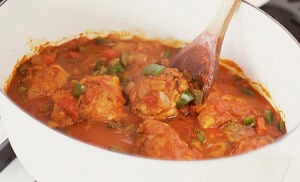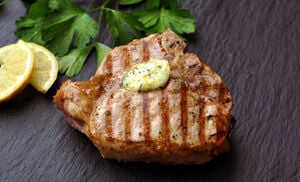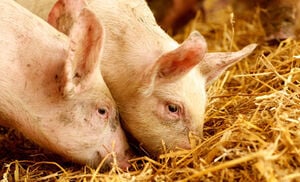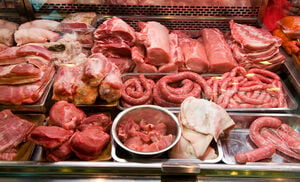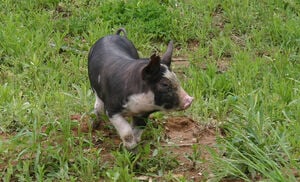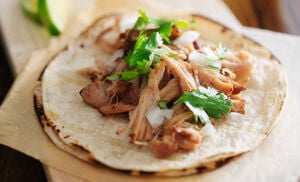Berkshire Pork Shoulder (Butt), Boneless
-
In Stock
- Exceptionally tender, well-marbled style of pork
- Berkshire-breed pigs humanely raised on pasture
- No antibiotics or hormones from birth
- Fed a vegetarian diet with no animal by-products
- Ships in an uncooked state
- Product of USA
- For best taste on fresh products, use or freeze within 3-5 days of receipt; for frozen products, use within 1-2 days after thawing
- Subscription Eligible
Cooking Methods: Smoke, Slow Roasted, Braised
Pork butt is a versatile cut that can be prepared using various cooking techniques.
- Slow roasting involves cooking the pork butt for several hours in a low-temperature oven until it is tender and falls apart easily. This technique is great for making pulled pork, a classic dish that can be served in sandwiches, tacos, or on its own.
- Braising is another slow method with succulent results. Brown the pork butt on all sides before cooking it in a flavorful liquid, such as broth or wine, in a covered pot for several hours. This method produces a fork-tender and juicy meat that can be served with a sauce made from the reduced liquid.
- Smoking is commonly used for making barbecue pork and will infuse the butt with smoky flavor while making it incredibly tender. Start by rubbing the pork butt with a blend of spices such as brown sugar, paprika, chili powder, salt, and pepper. If desired, prior to adding dry rub, brine the pork butt in a mixture of water, salt, and sugar overnight to add flavor and keep it moist during the smoking process.
Preheat the smoker to 225°F and add your preferred wood chips or chunks, such as hickory or applewood, to the smoker box. Place the pork butt on the grates and let it cook for several hours until it reaches an internal temperature of 195°F.
To ensure that the pork butt is moist and juicy, wrap it in foil or butcher paper during the last few hours of cooking. Let the pork butt rest for at least 30 minutes after it's done cooking to allow the juices to redistribute. Once rested, shred the pork and serve it with your favorite barbecue sauce or as a topping for tacos or sandwiches.
Our mission is to find farmers that share our vision of a more humane and sustainable way of rearing livestock. The cooperative of small family farmers that raises our Berkshire hogs is dedicated to traditional methods, allowing hogs to feed on pasture, with access to water and supplemental grain consisting of corn, soybeans and rolled oats. No pesticides, animal by-products or fishmeal are allowed. The majority of the farms are sustainable "circle farms" that raise and grind their own feed for the pigs.
Families of pigs are left together, to forage and frolic outdoors on pasture. The indoor spaces offer at least 15 square feet of space per animal, and sows are never put in gestation crates.
The cooperative is strict about banning the use of antibiotics and hormones on each farm and limiting the number of hogs the farms raise. They seek to add another farmer to the cooperative before they add more pigs to any one farm, making the process more humane for all concerned.















